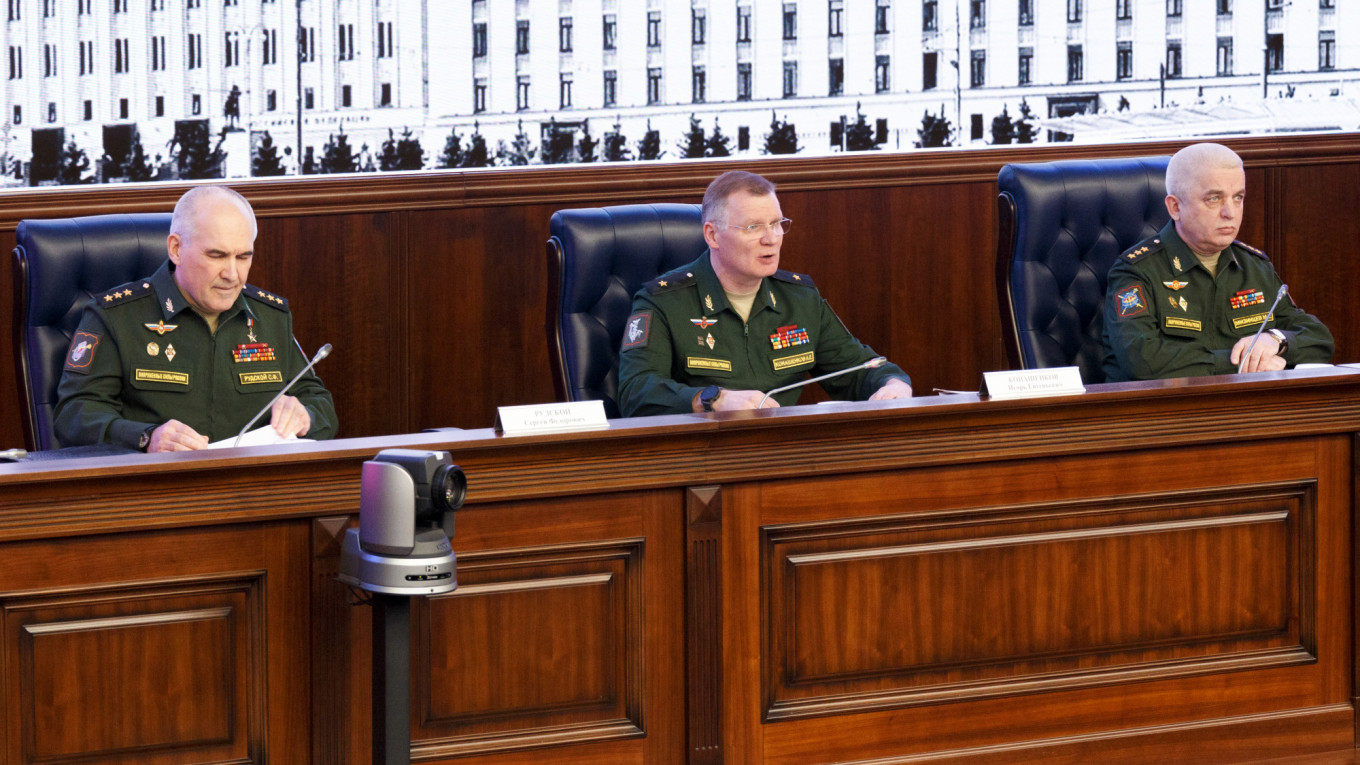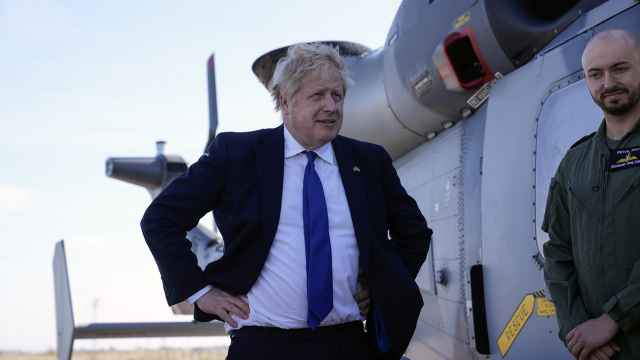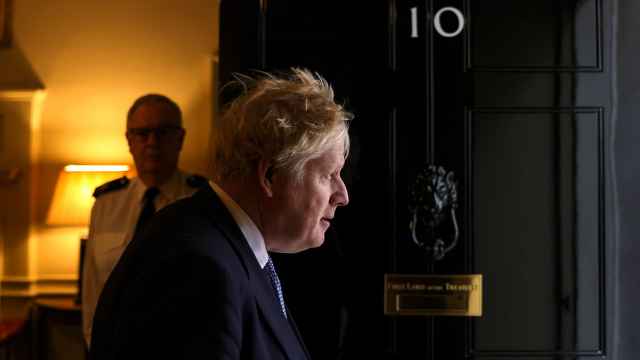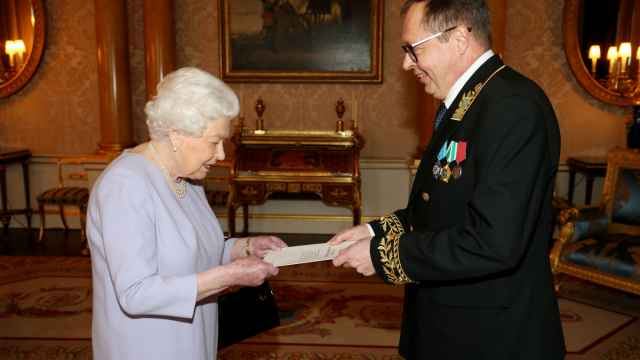Britain on Thursday announced fresh sanctions targeting Russian army chiefs, condemned by the U.K. foreign minister as having Ukrainian blood on their hands.
The Foreign Office announced a swath of sanctions against "generals committing atrocities on the front line, as well as individuals and businesses" supporting President Vladimir Putin's military.
Foreign Secretary Liz Truss tweeted that the sanctions were on "those with Ukrainian blood on their hands."
The U.K. government has concluded that Russian bombing of civilian infrastructure is "intentional targeting," the Foreign Office statement said.
Those blacklisted include Lieutenant Colonel Azatbek Omurbekov, reportedly the head of a Russian military unit that has committed alleged war crimes in the town of Bucha, near Kyiv. He has been nicknamed "the Butcher of Bucha" by English-language media.
Three generals are also targeted, as well as defense ministry spokesman Igor Konashenkov, according to an updated list on the government website.
The acting emergency situations minister Alexander Chupriyan is also added.
Organizations added to the blacklist include the Kalashnikov arms concern, famous for producing the AK-47. The U.K. said Russian troops have used its weapons in Ukraine.
The U.K. also placed sanctions on the Russian Railways monopoly and its CEO Oleg Belozyorov, calling it a "key enabler for transporting Russian military equipment."
Separately, the U.K. government announced further trade sanctions including import bans on Russian silver, wood products and caviar.
Finance minister Rishi Sunak said the new measures were aimed at "imposing further economic pain on Putin's economy for his barbaric and unjustified attacks on a sovereign nation."
A Message from The Moscow Times:
Dear readers,
We are facing unprecedented challenges. Russia's Prosecutor General's Office has designated The Moscow Times as an "undesirable" organization, criminalizing our work and putting our staff at risk of prosecution. This follows our earlier unjust labeling as a "foreign agent."
These actions are direct attempts to silence independent journalism in Russia. The authorities claim our work "discredits the decisions of the Russian leadership." We see things differently: we strive to provide accurate, unbiased reporting on Russia.
We, the journalists of The Moscow Times, refuse to be silenced. But to continue our work, we need your help.
Your support, no matter how small, makes a world of difference. If you can, please support us monthly starting from just $2. It's quick to set up, and every contribution makes a significant impact.
By supporting The Moscow Times, you're defending open, independent journalism in the face of repression. Thank you for standing with us.
Remind me later.






